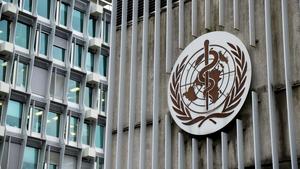 The headquarters of the World Health Organization in Geneva, Switzerland, in a photo taken on Jan 30. (CHEN JUNXIA / XINHUA)
The headquarters of the World Health Organization in Geneva, Switzerland, in a photo taken on Jan 30. (CHEN JUNXIA / XINHUA)
Advancing reforms of the World Trade Organization will be one of the key areas of international cooperation in dealing with challenges brought by the COVID-19 pandemic, a senior Japanese economist said on Wednesday.
"Reforming the WTO is extremely important because the global economy needs trade rules," said Masahiro Kawai, who heads ERINA, a think tank based in Japan that is committed to strengthening economic development and cooperation in Northeast Asia.
Reforming the WTO is extremely important because the global economy needs trade rules.
Masahiro Kawai, Head of ERINA, Japan
Avoiding further damage to trade from protectionism is critical for global recovery from the disruption brought about by COVID-19, as trade, a key channel for economic growth in many countries, has been hammered by the pandemic, Kawai said at the Global Think Tank Webinar, co-hosted by the Chinese Academy of Social Sciences and China Daily.
Major areas of reform for the WTO include dispute settlement, policy transparency and reporting, the status of developing countries, and nonmarket policy measures and practices, he said.
ALSO READ: Support voiced for WTO reform, multilateralism
It is also essential for China and the United States to work together and manage conflicts in trade and other areas, said Kawai, who previously headed a think tank that provides research to policymakers in developing Asian countries.
According to WTO statistics, the volume of world merchandise trade shrank by 3 percent year-on-year in the first quarter of the year.
In April it estimated that world merchandise trade is expected to fall by between 13 percent and 32 percent this year as the global pandemic disrupts normal economic activity and life.
Apart from calling for concerted efforts to reform the WTO and stabilize global trade, Kawai underlined the importance of strengthening international cooperation in the areas of vaccine and antiviral drug development, assistance to low-income and lower-income countries, and policy support for personal incomes and small business.
Developing effective vaccines and antiviral drugs to combat the novel coronavirus and making them available to everyone are vital to providing a sense of security and safety as well as restarting economic activities and the international movement of people, he said.
READ MORE: 'Vaccine nationalism': Is it every country for itself?
With regard to the shape of the Japanese economy, Kawai said that despite the sharp blow dealt by the pandemic, the economy seemed to have bottomed out in May and June and started to recover this month.
If Japan succeeds in containing the rise in new COVID-19 infections, its economy is set to continue to recover in the second half of the year, he said.
MASAHIRO KAWAI, representative director and director-general of the Economic Research Institute for Northeast Asia. Kawai is also former dean and CEO of the Asian Development Bank Institute.


